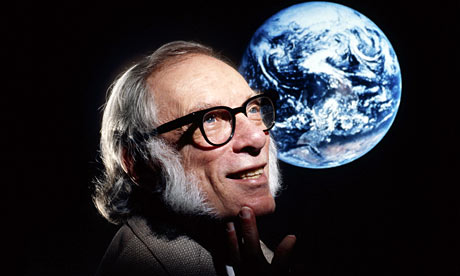
Following an earlier effort in 1981, the BBC is set to broadcast its second adaptation of John Wyndham's tale of big, bad and quite possibly bioengineered plants. Even that wasn't the first time the novel was filmed. In 1962, there was a big-screen version starring a young Howard Keel. What is it about John Wyndham's Day of the Triffids?
That's not to say it's a bad idea. The cast of the new version, including Dougray Scott, Joely Richardson, Brian Cox, Vanessa Redgrave and Eddie Izzard, is suitably starry. In addition, scripter Patrick Harbinson's CV includes such gnarly and gory series as ER and Law & Order: Special Victims Unit, which suggests the series won't flinch easily.
Still, it's tempting to ask, why the walking greenery again when there are so many science fiction and fantasy novels that haven't made it to the screen? And we're not just talking minor tomes, by the way, but classics. Perhaps jaded TV and movie executives simply haven't the time to sort out thorny issues like rights, scripts and budgets.
Here are some science fiction and fantasy novels that should be thought of, have been shown already, or rescued from development hell ...
Foundation (Isaac Asimov, 1951)
What? A space opera, influenced by Edward Gibbon's The History of the Decline and Fall of the Roman Empire and built around the concept of psychohistory, the idea that the broad swathes of what's to come can be predicted.
Why? If only because Asimov's idea that humankind's actions en masse are susceptible to socio-mathematical study seems increasingly prescient, although admittedly this in itself may be a point that lacks dramatic impact.
Why not? Because Roland Emmerich, the creative powerhouse behind the idiotic 10,000 BC, Godzilla and Independence Day is already in the frame to direct. Nooooo!
Starring: On the basis of Emmerich's risible American Revolution epic, The Patriot, anyone but Mel Gibson.
Dragonflight (Anne McCaffery, 1968)
What? Fusing fantasy with science fiction, McCaffery's first Dragonriders of Pern novel introduces us to a planet where fire-breathing lizards fight off Thread, a spore from another world that devours organic matter.
Why? Not only does McCaffery write movingly of the deep bond between dragon and rider, but she spins a great yarn as she tells the story of dragonrider Lessa, a woman who, in epic fantasy style, triumphs after surviving her noble family's slaughter.
Why not? Too much potential for shonky CGI dragons voiced by elderly superstars.
Starring: A personable young thesp. The key will be getting the youngster's oh-so-inevitable elder advisors correctly cast. Helen Mirren, Timothy Spall and David Attenborough would provide the right mix of gravitas, humour and wildlife expertise.
Elric of Melniboné (Michael Moorcock, 1972)
What? As a critic of both JRR Tolkien and CS Lewis for their conservatism, it should perhaps come as no surprise to discover that Michael Moorcock's take on epic fantasy is deeply subversive.
Why? Elric might be a sickly albino, but he's also herb-snaffling sorcerer. In short, he's a counterculture anti-hero. Plus the soundtrack: lots of heavy space-rock inspired by Moorcock's collaborations with Hawkwind would be ideal.
Why not? Since Lord of the Rings, it seems that every fantasy adaptation has been a whitebread affair.
Starring: Apparently, Chris and John Weitz have met with Moorcock to discuss a trilogy of Elric films. Bearing in mind the duo's work on American Pie, how about an audacious career reinvention for Jason Biggs or Seann William Scott? Sorry, just a thought.
Neuromancer (William Gibson, 1984)
What? The novel with which, no matter who else may lay claim, Gibson invented the world wide web and coffee bar franchises with wireless access (and microchipped sliced bread that self-destructs when it reaches its sell-by date).
Why? Because it's the first true cyberpunk novel, silly. As such, it demands to be made into a movie. Johnny Mnemonic you say, and you have a point, but let's take the risk.
Why not? The world is already full of computer nerds who, despite having no social skills whatsoever, think they're cool because they've got a long leather coat that flaps around their ankles, badly daubed Marilyn Manson make-up and a copy of Blade Runner on DVD.
Starring: We've tried rebooting the matrix, but strangely the name Keanu Reeves keeps spewing out at us.
River of Gods (Ian McDonald, 2004)
What? Set in 2047, the centenary of Partition, an epic take on India's near-future that finds a now balkanized and technologically advanced subcontinent at another crucial turning point.
Why? Because too often science fiction rests on the assumption the future is something that happens to the west. Or sometimes in Japan. Post-Slumdog, when better to address this?
Why not? Because someone will write a Bollywood version packed with song and dance numbers and a heartwarming tale of love across a social divide. Although come to think of it ...
Starring: \Is this the perfect post-ER vehicle for Parminder Nagra?

